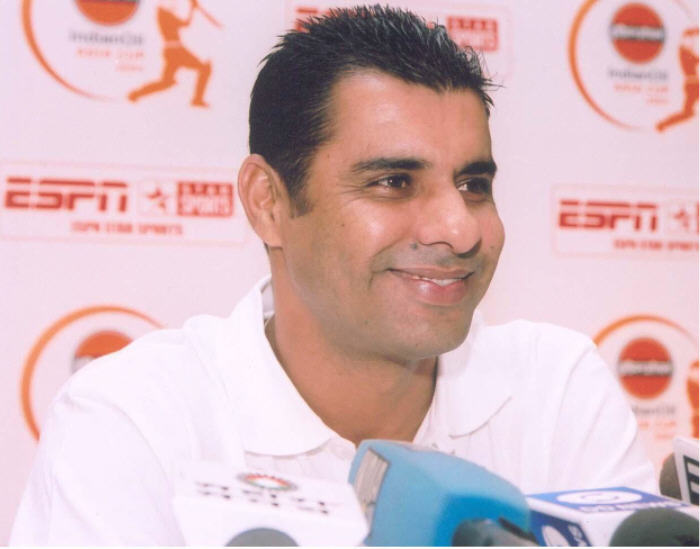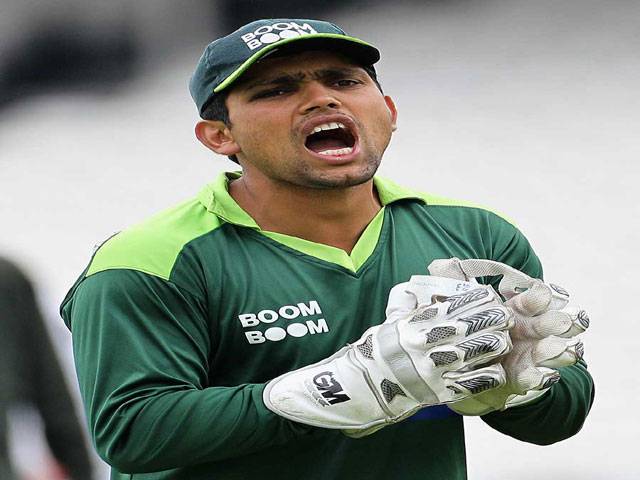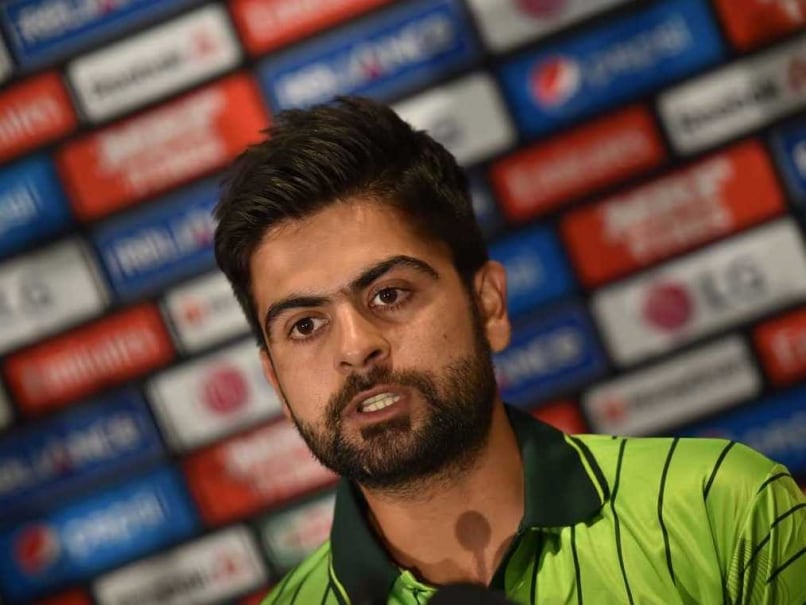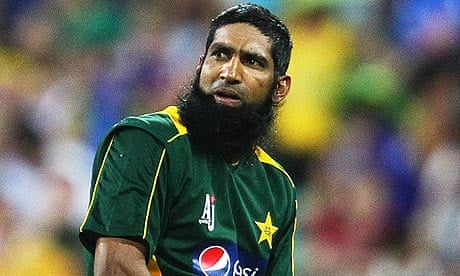With a flowing, bearded look that resembled WG Grace, an insatiable hunger for runs that rivalled Don Bradman, an elegant and effective high backlift that he made his own and the ability to inconspicuously accumulate tons and tons of runs; Mohammad Yousufwas easily one of the most delightful batsmen to watch in recent times.
Former coach Bob Woolmer likened him to a Ferrari when he is batting and a truck when he isn’t.
With a pragmatic manner of scoring runs, but still elegant enough to make you go wow at his strokes, Yousuf ploughed his way to 7,530 runs in Test matches — the third-highest run-tally among Pakistanis, behind Javed Miandad and Inzamam-ul-Haq) — including 25 hundreds and 46 fifties. In ODIs, he is Pakistan’s second-highest run-getter with 9,554, behind just Inzamam, including 15 centuries and 62 fifties. It’s a tally that is hard to match, and if circumstances in his career were better, he would easily have gone on to be Pakistan’s greatest batsman ever.
Early career
He was born Yousuf Youhana, a Christian, in Lahore in 1974; and like most Christian minorities in Pakistan, who had converted from Hindu untouchables in the 19th century, he was born into poverty. His father worked at the railway station and, thus, his family lived in the Railway Colony. Yousuf took to cricket from a young age, but unlike his peers he could not afford a bat; so he had to make do by swatting a taped tennis ball around, tossed by his brother, with stray wooden planks.
When he was 12, he was spotted by a local gymkhana who asked him to play for them. As he grew up, he joined the Forman Christian College and played for their cricket team as well, before giving up for almost a year in 1994, when he was 20. Although he was and probably realised that he was very good at cricket, he never gave it a serious thought. A steady income was always at the top of the priority list; never did the thought of playing for the country cross his mind. “I just wanted a job in an organisation with a First-Class cricket team, and to make a living,” were as far as his humble ambitions went, as quoted by Wisden. Yousuf had found work at a tailor’s shop when a local club hauled him up when they were short of players. Yousuf stepped in to make the numbers, and went ahead of score more than hundred of them. It led to a season in the Bradford League, which was a stepping stone into First Class cricket.
Yousuf was ignored by mighty and pristine Lahore team in the mid-nineties due to his faith and background. Thus, he went ahead to play for Bahawalpur in 1996. Within a few months, Lahore realised their folly and requested him to play for them in the 1997-98 season. Within no time of making the switch, Yousuf was picked in the Pakistan squad for a tour of South Africa and made his Test debut at Durban in February 1998. He had thus become only the fourth Christian to play cricket for Pakistan after of Wallis Mathias, Antao D’Souza and Duncan Sharpe, an Anglo-Pakistani.
And so it began. The Pakistani run machine was switched on; its first target was the Zimbabwe team. In his first two innings against the African nation in both Tests and ODIs, Yousuf scored half-centuries. He also went on to hold the record of scoring the most runs without being dismissed in ODIs when he hit 405 runs unscathed against Zimbabwe in 2002–2003, including a 23-ball fifty and 68-ball hundred. He was also the top scorer in the world in the shorter format in 2002 and 2003. In that same period, he blazed his way to a 27-ball fifty in a Test match against South Africa, which is the fourth fastest by any player. Yousuf soon formed a formidable Pakistan middle order along with Inzamam-ul-Haq and Younis Khan that pulverised bowling attacks around the world.
Conversion to Islam
In Ramchandra Guha’s book, Corner of a Foreign Field, the author mentions an incident involving British writer Geoffrey Moorehouse, who came across a gifted Christian cricketer playing in Quetta. “Moorehouse asked why he didn’t move to cricketing centres like Lahore or Karachi to better his chances of playing for Pakistan. The boy’s reply was revealing: ‘all the best jobs in the country went to Muslims and no Christian had a hope of getting anywhere in cricket — not like in India, where Roger Binny has made the test team.’”
Yousuf’s faith as a Christian was always a taboo topic right from the beginning, but perhaps never came to the fore in the initial stages of his career; at least nothing significant was reported about it. He had married a Christian woman and things seemed normal. But suddenly, one fine day in 2005, news broke that Yousuf had converted to Islam. Yousuf Youhana had become Mohammad Yousuf. The earlier clean shaven look was replaced by a flowing beard that grew with years. His family was shocked and expressed anger at the decision. The Daily Times reported that Yousuf had been banned from his home. “I don’t want to give Yousuf my name after what he has done,” his mother is reported to have said.
Yousuf confirmed that he attended preaching sessions held by the Tablighi Jamaat — Pakistan’s largest non-political religious grouping — where teammate Saeed Anwar and his brother used to preach. Rumours started circulating that he had been pressured into the change by a team with increasingly devout Islamic beliefs. However, Yousuf said that he had converted out of his own free will with no external pressure. “I cannot tell you what a great feeling it is,” he told the BBC, also adding that “the discipline and focus Islam has instilled have filtered into my batting.”
Purple patch
Whether it was his change in belief or not, it seemed to have worked. In July 2006, when Pakistan toured England, Yousuf essayed three innings of extreme class: he scored 202 in the first Test at Lord’s, rescuing Pakistan from 68 for 4, batting 7 hours 48 minutes in an innings that included 26 fours and a six, and bowed his forehead to the turf in the direction of Mecca; at Headingley, Yousuf fell 8 short of his third double century in four Tests against England (he had scored one at Lahore the previous year) after a mix-up with Inzamam, but not before he shared a mammoth partnership of 363 with Younis Khan which was the fifth-highest for any wicket against England, Pakistan’s highest against England, the third-best in a Headingley Test, and the biggest in all Test cricket in a losing cause; and finally, in a controversial final Test at The Oval where the Pakistan team was accused of ball-tampering by umpire Darrell Hair which eventually led to a walk-out, Yousuf gave the Pakistani fans something else to remember about with 128 in 236 balls, including 18 boundaries.
In their series round-up, Wisden had this to say: “…the best cricket of the summer was played by Mohammad Yousuf and Younis Khan. Yousuf, heavily bearded, played with concentration, power and elegance, an advertisement for the potency of prayer. Having converted from Christianity to become a devout Muslim, he took his average under his new name to 81, compared to 47 as Yousuf Youhana.”
In the calendar year 2006, Yousuf scored 1,788 runs in Test matches and scored nine centuries, breaking two records previously held by Sir Viv Richards; both had taken 11 Tests to do so. His average for that year was a Bradmanesque 99.33. In November that year, Yousuf achieved 933 rating points in the ICC Test Rankings for batsmen, which was the 10th highest figure ever achieved; it got him to a personal best ranking of No 2 in the world, behind an equally prolific Ricky Ponting. Thus, it came as no surprise when Yousuf was named ICC Test Player of the Year.
ICL connection
In 2007, Yousuf signed on for the Lahore Badshahs franchise in Indian Cricket League (ICL), an Twenty20 league in India that preceded Indian Premier League (IPL). The Board of Control for Cricket in India (BCCI) did not recognise the ICL and reports suggested that they used arm-twisting tactics on other member boards, including the Pakistan Cricket Board (PCB), to withdraw their players. Eventually, Yousuf had to relent to the pressure from the PCB and went back on his deal, which led to a legal battle with the ICL. As a result, a promised entry into the BCCI-sanctioned IPL a year later did not go through due to the litigation.
In 2008, Yousuf once again threatened to join the ICL midway through its second season after the PCB dropped him from the Pakistan squad. A PCB official was quoted as saying, “We have banned all our cricketers who joined the ICL and if Yousuf also plays for the unauthorised league then he will have to face the same punishment. Yousuf is still our best Test batsman and has a future with the Pakistan team, but not if he joins the ICL.” The PCB banned him from the national team, but was to make a return the following year after a Pakistan court suspended the ban on ICL players.
Yousuf made a return to the Pakistan squad during a Test series in Sri Lanka in July 2009, after permanently ending his association with the ICL. He marked his return with a century at Galle in the first Test and 90 in the third and final match, but could not prevent a 2-0 defeat for Pakistan. Soon, he was to be made captain of the team.
More trouble with PCB
March 10, 2010, saw a colossal blow landing onPakistan cricket just before the national squad embarked on a quest to defend their World Twenty20 title. PCB, chaired by Ijaz Butt, imposed bans and finesof various magnitudes on as many as seven players, including Yousuf who was the captain. The seeds were sown during the Australian summer of 2009-10 when Pakistan toured the land Down Under for three Tests, five One-Day Internationals (ODIs) and a lone Twenty20 International (T20I). Mohammad Yousuf’s team lost all nine matches.
Captain Yousuf and his predecessor, Younis, were banned from playing for Pakistan in any format for an indefinite period. With both Yousuf and Younis being on the wrong side of 30, not many expected them to play for Pakistan again, at least till Butt was still at the helm. Yousuf’s case was particularly perplexing, as he hadn’t done anything so grave as to warrant an indefinite ban. He wasn’t the first captain to experience a total series whitewash and had agreed to undertake leadership of the side after Younis had unceremoniously given up in 2009 following match-fixing allegations.
At the end of March, Yousuf announced his retirement from international cricket in protest. “I have received a letter from the PCB suggesting that my presence in the team is harmful for the team and so I announce my retirement from international cricket,” Yousuf said. “I thank fans around the world, all the senior players and family members for supporting me throughout my 12-year career. I have always played for my country and if my playing is harmful for the team then I don’t want to play.”
However, Yousuf and Younis were both recalled by Pakistan to the national squad after a dismal start to the England tour that August. Yousuf played the entire tour, in both Tests and one-dayers, before being dropped again. His final match for Pakistan till date was an ODI against South Africa in Dubai, where he scored just three runs.
Yousuf tried to make another return to the team by playing domestic cricket, on the board’s own suggestion, but, in November 2012 hit out at them for not letting him play in the President’s Trophy First-Class tournament despite domestic performance being a pre-requisite for national selection. “I don’t understand the attitude of the board. On one hand the selectors say I must play in domestic cricket to prove my form and fitness and on other hand the board is not giving me clearance to play in the tournament,” Yousuf said.
In May 2013, some media channels reported that Yousuf had retired from international cricket. However, Yousuf denied the reports and said, “I am already out of the Pakistan team and haven’t played top class cricket for a while now so what is the purpose of me announcing any retirement.
“The selectors are not considering me for selection and frankly speaking I haven’t had the chance to play regular cricket for a while now.”
At 39 years of age, at the time of writing, there does not seem to be any way back for Yousuf into the team. Whatever said and done, it does seem like a sad end to an illustrious career which warrants a place for him in the society of modern-day greats.
Mohammad Yousuf
Mohammad Yousuf
Mohammad Yousuf
Mohammad Yousuf
Mohammad Yousuf
Mohammad Yousuf
Mohammad Yousuf
Mohammad Yousuf
Mohammad Yousuf
Mohammad Yousuf
















































